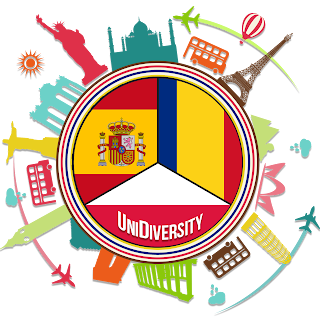Activity I. Stereotype and the scientific method.
During the lesson we will ask our students to write a sentence to express a general idea about groups of people, such as German, homosexual or people from Spain…
Then, we ask which of these sentences have a real substance and if they can justify them. Later, we explain the scientific method and the induction problem. By induction we get general results from particular cases; but, first, the guaranty of certainty is not absolute because we can’t observe the 100% of the cases and, second, we can’t observe the future. Nevertheless we can trust on the result if we have studied a quite representative number of cases. But now the question is: How many cases are necessary to generalize about Spanish, German, homosexual or whatever people?
We return to the sentences our students wrote to see how many will resist the scientific method.
Activity II.
Physical stereotypes.
This activity continues the previous one but is focused on the physical appearance in order to question the concept of race.
We show the students pictures of people from different nationalities and they have to guess where they are from. Later we will analyse the successes and mistakes and the reasons why they choose each nationality.
Activity III.
Contribution to the culture.
The students will work in the school on the contributions of the other cultures to our own. This can be done in different areas: cooking, music, foreign words, feasts…
Later the students will elaborate a poster or a digital presentation about a national personality and his/her contribution to the culture and it will be shown during an international meeting.
Activity IV.
Stop rumours.
This is the name of the campaign that
Málaga Acoge is developing to stop prejudices about immigrants. It would be very interesting to visit the place where Málaga Acoge works and arrange a talk with volunteers about the most usual prejudices we have or maybe to invite a person to talk about her/his own experience in our country: about the problems they have found or the help they have been offered, if it is the case.
Activity V.
This activity is related to immigrants. Greece will be in charge of showing us how they experience the arrival of immigrants, to what extend the rest of Europe is involved etc...
We will talk about it and our conclusions will be shared. We will anlayze not only the ideas that we have but also those ones which have been modified throughout the activities.
Activity VI.
The relation between our environment and appearance.
We are going to try to guess the best physical characteristics for the different Biomes (big ecosystems) such as:
- Hot Dessert
- Tundra
- Tropical forest
- Equatorial forest
- Mediterranean forest
- Taiga
- Savanna
- High mountains.
First, they will have to look for information about each Biome: physical and climatological and flora and fauna characteristics etc...
Later, they will have to imagine a human stereotype with the most appropriate characteristics for each of the biomes.
Finally, we investigate the different “human races”, their own characteristics to get our own conclusions.
Activity VII. Get to know the different blood types.
Genetics is a very modern science, with a great projection in its applications nowadays and in a near future.
Blood types make us get divided into eight different groups but at the same time the whole world population is together into these eight groups.
-We will see the basics of genetic laws.
-We will learn about our blood types.
Eight groups of students and teachers will be made in relation to their blood type. If they don’t know, they will be assigned to the different ones at random. They have to find out which groups can be their donors and to whom they can donate blood. Thus, we will see uniqueness and generality in addition to promoting blood and organs donation by encouraging generosity.



























